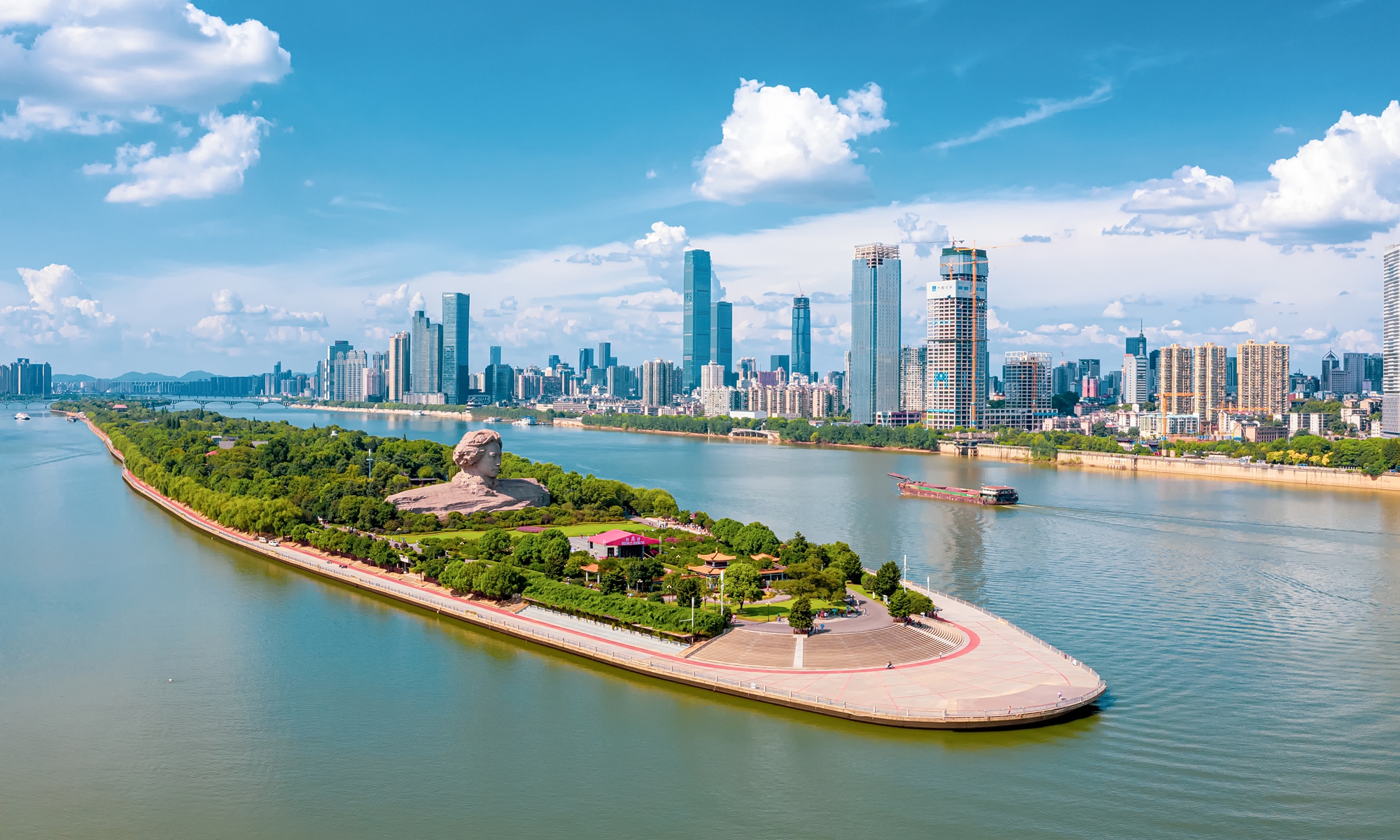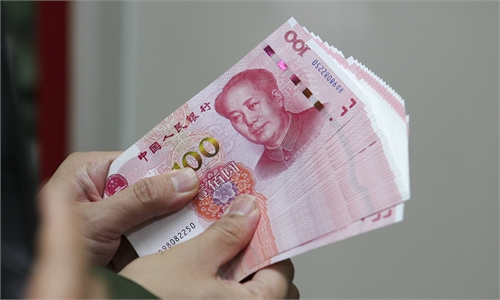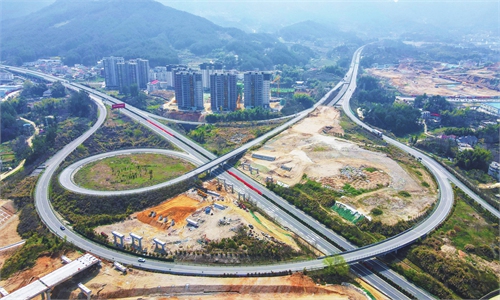More Chinese inland localities move to spur economic growth with forceful measures
Chinese economy heads toward a full-sprint mode

Changsha Photo: VCG
More inland localities have moved to reboot their local economies with the announcement of forceful measures to put economic growth on the front burner, as a ramped-up push for an optimized coronavirus response switches the Chinese economy to a full-sprint mode.
At a press conference on Tuesday, the city government of Changsha, Central China's Hunan Province expounded 12 new measures tailored for investment promotion.
The new policy measures, which include rewards for investment projects of up to 10 million yuan ($1.43 million), offer clues to how the inland city would spearhead economic and social high-quality development and go all out to achieve economic growth, according to a post on the city government's official WeChat account.
The city will hinge its growth on reinvigorating the lifeline of investment attraction, per the post, citing a meeting readout.
Top firms - the world's top 500, China's top 500 - that come to invest in Changsha will see their local operations get rewards of as much as 10 million yuan, barring real estate projects.
In addition, foreign-invested firms are encouraged to invest via new operations, capital increases, equity mergers and acquisitions, and reinvestment of profits, according to the new measures. Foreign manufacturing firms looking to the city for opportunities are also incentivized with rewards of up to 5 million yuan.
The rollout of the 12 new measures is intended to turn the city into an inland reform and opening-up powerhouse, the Tuesday post said.
In the first 10 months of the year, the city's actual use of foreign investment exceeded $3 billion, accounting for 88.3 percent of the province's total. Its actualized outbound investment topped $900 million, or 80 percent of the province's total, official data showed.
Meanwhile, in Southwest China's Chongqing Municipality, an economic work symposium was held on Tuesday morning, presided over by Yuan Jiajun, the municipality's Party chief, the Chongqing Daily reported.
Resuming the normal operations of society in the fastest possible manner and accelerating the economic recovery and reinvigoration are the most urgent tasks at present, Yuan said, urging efforts to expand investment, notably for industrial projects, and strengthen supply chains.
Furthermore, he pledged an all-out effort to stabilize businesses and boost confidence and called for the timely launch of investment promotion activities.
Chongqing is envisioned to play its part in reviving up national development and flexing its muscles as an underpinning of the country's push for the development of western regions, according to Yuan.
In another example, North China's Shanxi Province has unveiled 29 measures aimed at stepping up work and production and the recovery of the services sector, state broadcaster China Media Group reported on Tuesday.
Services businesses are encouraged to resume operations as the province intends to foster a consumption revival at a faster pace, read the new measures that dole out incentives for accommodation, catering, culture and tourism, among other sectors.
With the wide-ranging pro-growth policy rollout, these inland localities are seen as joining the ranks of their coastal counterparts that have kept their radar tuned to changes in business sentiment.
A commercial delegation comprised of private businesses in Wenzhou, East China's Zhejiang Province and overseas Chinese took a direct flight to Milan, Italy on Monday where they are seeking to secure orders, media reports said.
Many local businesses competed for a seat on the delegation, which, among other similar overseas investment promotion initiatives, tends to be exemplary, Zhou Dewen, deputy director of the China Association of Small and Medium Enterprises, told the Global Times on Tuesday.
Coastal regions in eastern and southern parts of the country apparently took the first step in reviving business sentiment, with their inland counterparts following suit with action plans in accordance with local realities, Zhou explained.
An array of localities such as East China's Jiangsu Province and South China's Guangdong Province have also organized charter flights carrying export-oriented business executives in pursuit of opportunities in overseas markets, according to media reports.
Such efforts, adding to a slew of pro-growth policies at the central and local government levels, are seen as putting the economy back on track for a rapid rebound after epidemic flare-ups and other issues put downward pressure on the economy.
"Looking ahead, we think property credit demand will likely improve, infrastructure and manufacturing related credit demand will moderate, while consumer credit may recover somewhat, thanks to the expected consumption rebound" amid China's fast-tracking of an optimized approach to COVID-19 prevention and control, UBS economists led by Wang Tao wrote in a note sent to the Global Times.
Earlier in December, the country announced 10 optimized epidemic prevention and control measures that relaxed anti-epidemic restrictions. The new measures urged officials to rectify oversimplified or one-size-fits-all approaches and excessive policy steps, among admonitions intending to maximize the protection of people's lives and health, and minimize the epidemic's impact on economic and social development.
Following the announcement of the measures, many analysts expect a rapid economic recovery ahead, as many business activities will resume full operations once the epidemic subdues.



